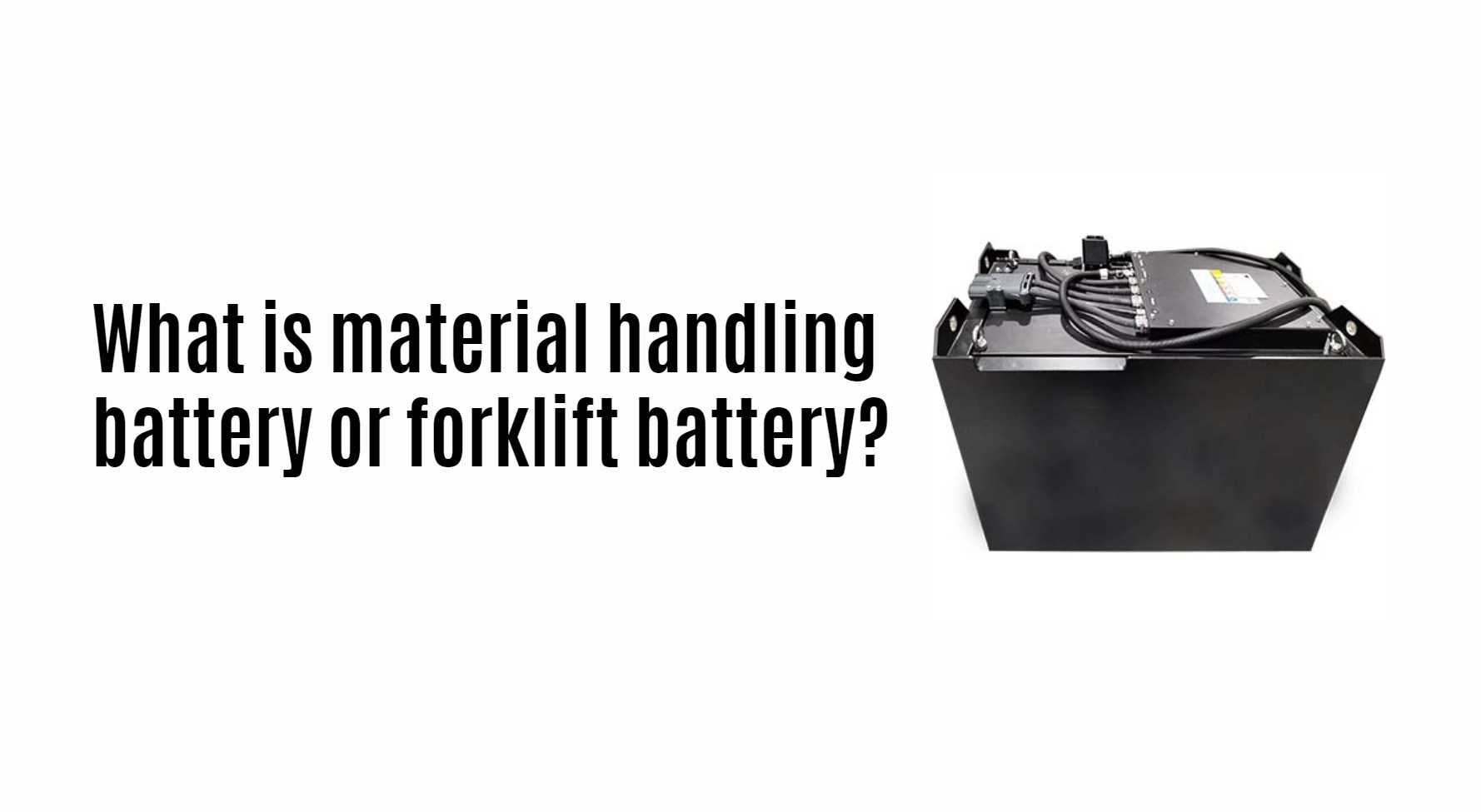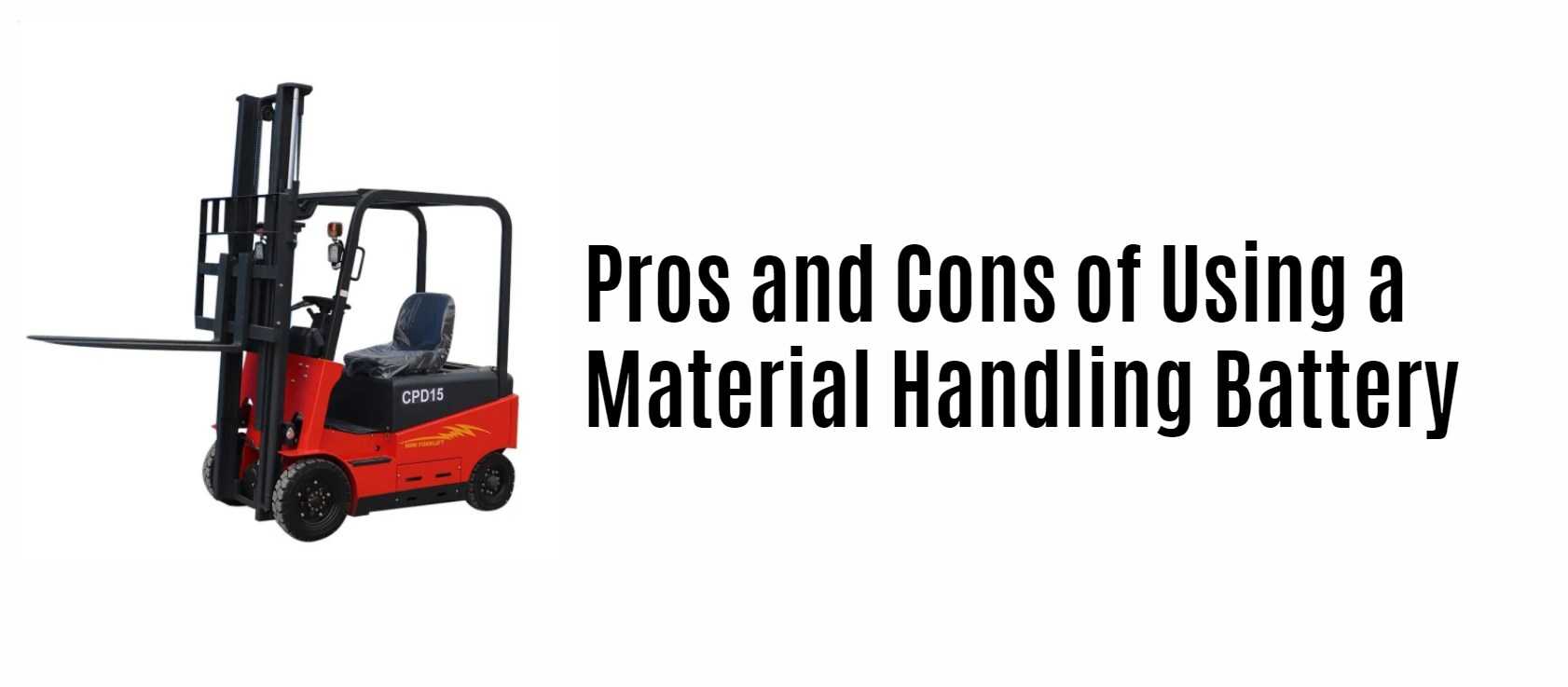In the realm of industrial operations, the role of batteries, particularly material handling batteries or forklift batteries, cannot be overstated. These power sources are essential for the efficient functioning of various types of equipment, especially in warehouses and manufacturing facilities. Understanding the intricacies of these batteries is crucial for optimizing performance and ensuring operational efficiency.
Understanding Material Handling Batteries
Material handling batteries are specifically designed to power equipment used in the movement, storage, control, and protection of materials throughout the manufacturing and distribution process. These batteries are integral to a variety of machines, including:
- Forklifts
- Pallet Jacks
- Order Pickers
- Automated Guided Vehicles (AGVs)
The primary function of these batteries is to provide a reliable and consistent power source that can withstand the demands of heavy-duty applications.
Types of Material Handling Batteries
- Lead-Acid Batteries
- Traditionally, lead-acid batteries have been the go-to choice for material handling applications due to their affordability and reliability. They come in two main types:
- Flooded Lead-Acid (FLA): Requires regular maintenance, including watering and equalizing charges.
- Absorbent Glass Mat (AGM): Maintenance-free and offers better performance in extreme conditions.
- Traditionally, lead-acid batteries have been the go-to choice for material handling applications due to their affordability and reliability. They come in two main types:
- Lithium-Ion Batteries
- In recent years, lithium-ion technology has gained popularity due to its numerous advantages:
- Longer Lifespan: Typically lasts longer than lead-acid batteries.
- Faster Charging: Can be charged more quickly, reducing downtime.
- Higher Efficiency: Provides more usable energy and requires less maintenance.
- In recent years, lithium-ion technology has gained popularity due to its numerous advantages:
- Nickel-Cadmium (NiCd) Batteries
- While less common today, NiCd batteries are still used in some applications due to their robustness and ability to perform well in extreme temperatures.
Key Features of Forklift Batteries
Forklift batteries are engineered to meet specific requirements that enhance their performance:
- Capacity: Measured in amp-hours (Ah), this indicates how much energy the battery can store.
- Voltage: Common voltages for forklift batteries include 6V, 12V, 24V, 36V, and 48V. The choice depends on the application and equipment specifications.
- Cycle Life: Refers to the number of charge-discharge cycles a battery can undergo before its capacity significantly diminishes.
Advantages of Using Lithium LiFePO4 Batteries
At Redway Battery, our focus on producing high-quality Lithium LiFePO4 batteries offers several advantages for material handling applications:
- Safety: LiFePO4 chemistry is known for its thermal stability and safety compared to other lithium-ion technologies.
- Performance: These batteries deliver consistent power output, ensuring that forklifts operate efficiently throughout their shifts.
- Customization: We provide tailored solutions for various voltage requirements—12V, 48V, and 72V—allowing businesses to find the perfect fit for their operational needs.
Latest Trends in Material Handling Batteries
As industries evolve, so do battery technologies. Recent developments include:
- Increased Adoption of Lithium Technology: More companies are transitioning from lead-acid to lithium-ion solutions due to their operational benefits.
- Smart Battery Management Systems (BMS): These systems enhance battery performance by monitoring health, optimizing charging cycles, and providing real-time data analytics.
- Sustainability Initiatives: Companies are increasingly focusing on eco-friendly practices, leading to a rise in demand for recyclable battery options.
Battery Maintenance Tips for Optimal Performance
To ensure longevity and efficiency from your material handling batteries, consider the following maintenance tips:
- Regular Inspections: Check for any signs of wear or damage regularly.
- Proper Charging Practices: Avoid overcharging or deep discharging to extend battery life.
- Clean Connections: Keep terminals clean and free from corrosion to maintain good electrical contact.
FAQs About Material Handling Batteries
What is the average lifespan of a forklift battery?
The lifespan varies based on type:
- Lead-Acid: 1,500–2,000 cycles
- Lithium-Ion: Up to 5,000 cycles
How often should I charge my forklift battery?
Charge your battery after each shift or when it reaches around 30% capacity for lead-acid batteries; lithium-ion can be charged more flexibly.
Can I use a lead-acid charger on a lithium-ion battery?
No, using an inappropriate charger can damage lithium-ion batteries. Always use chargers designed specifically for your battery type.
Conclusion
In conclusion, understanding the nuances of material handling batteries is essential for maximizing efficiency in industrial operations. With advancements in technology—especially with Lithium LiFePO4 solutions from Redway Battery—businesses can enhance their productivity while ensuring safety and sustainability. For customized battery solutions tailored to your specific needs, contact us today for a quick quote!





